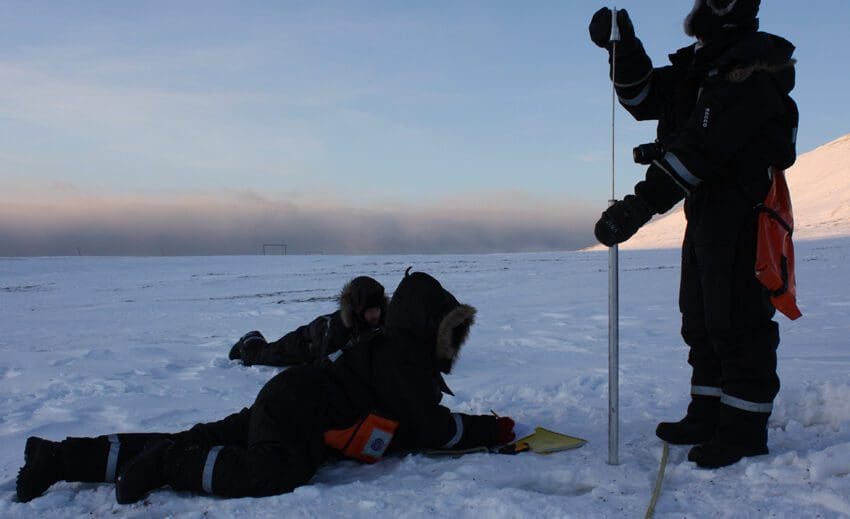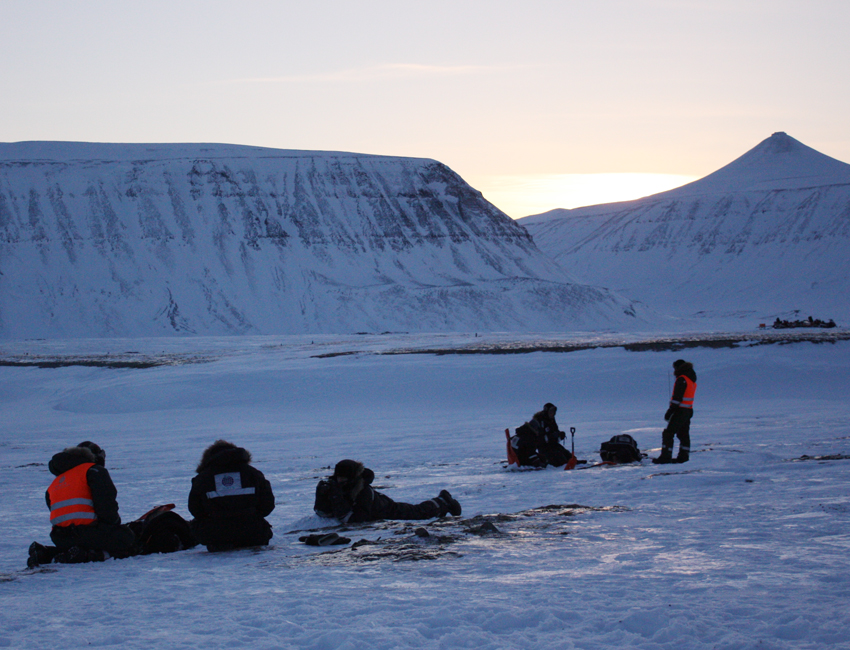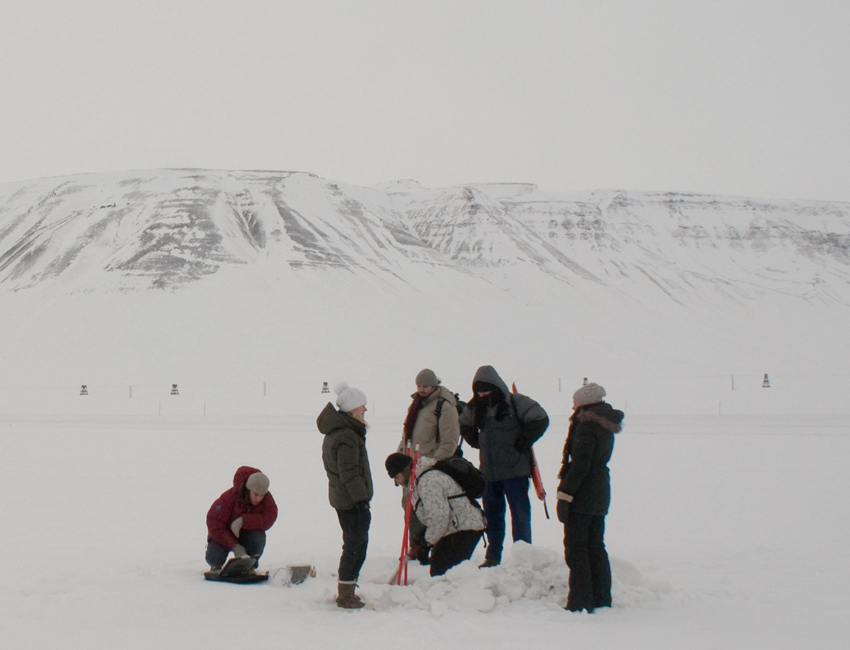AB-829 Arctic Winter Ecology (10 ECTS)
ID:
AB-829
CREDITS:
10 ECTS
APPLICATION DEADLINE:
October 15, 2023
START DATE:
January 08, 2024
COURSE PERIOD:
Spring semester (January 8th - week 8). Exact exam/end date TBA

AB-329/829 students performing fieldwork ion Colessletta. Photo: Larissa Beumer/UNIS.
| Grade: | Letter grade (A through F) |
| Course Cost: | None |
| Course Capacity Min/Max: | 10/20 students (AB-329/829 in total) |
| Language of instruction: | English |
| Examination support material: | Bilingual dictionary between English and mother tongue |
Course requirements
Enrollment in a PhD programme in biology or another relevant PhD programme.
Academic content
The students will gain insight into Arctic winter ecology by lectures. Topics will be the geophysical characteristics of seasonal, northern environments, physical properties of snow and ice, and adaptation and survival of terrestrial organisms during the Arctic winter, in contrasting habitats from tundra to glaciers. In seminar discussions, based on the course literature, certain topics will be dealt with in depth such as adaptive traits in terrestrial microbes, plants, and invertebrates, as well as the effects of changes in winter conditions as a consequence of climate change.
Strong emphasis is on field demonstrations of relevant features of the winter in the high Arctic for better understanding the selective forces of the Arctic winter.
Students are trained in applying ecological theory and methodology through field studies, and through writing a case study. Special focus is on teamwork and flexible project planning under challenging arctic winter conditions. The students present the results from project work in a poster and by oral presentation.
Learning outcomes
Upon completing the course, the students will be able to:
Knowledge
- describe and explain environmental conditions during the Arctic winter
- describe and explain adaptations and survival strategies that enable successful overwintering in terrestrial organisms
- explain and evaluate major winter conditions which impact on biological communities and terrestrial ecosystems
- apply gained knowledge to examine relationships among abiotic and biotic factors in the field, and interpret and evaluate current research within Arctic winter ecology and adaptations
Skills
- apply established ecological theories and scientific methods in project planning and data analysis
- measure environmental factors characterizing winter conditions in the field
- conduct laboratory measurements related to winter adaptation in terrestrial organisms
- investigate ecological data based on statistical evaluation and relate it to established ecological theory.
General competences
- plan and accomplish field work under harsh conditions of the Arctic winter
- demonstrate leadership and teamwork in research projects
- develop and manage a research project
- independently communicate research results orally and in writing.
Learning activities
The course extends over 1+5 weeks (see below) and is run in combination with AB-329.
Prior to arrival at Svalbard students must read primary literature that has been sent to them in advance, and they must prepare for seminars (approximately one week of full-time study). After arrival at UNIS, the course extends over 5 intensive weeks including compulsory safety training. See “Academic content” for an overview of the learning activities.
Summary
- Total lecture/seminar hours: 35 hours
- Lab work: 20 hours
- Fieldwork: ca. 4-5 day-excursions (strongly weather dependent)
Compulsory learning activities
All compulsory learning activities must be approved in order to be registered for the final assessment.
- Literature seminars with topical presentations
- Field work
- Laboratory work
Assessment
All assessments must be passed in order to pass the course.
Each assessment is graded, and subsequently combined into a single grade. Partial grades for each assessment will be available.
| Method |
Percentage of final grade
|
| Poster, including planning and executing inquiry based research project (group work), and individual reflections | 50 % |
| Written case study (individual) | 50 % |
Student life


